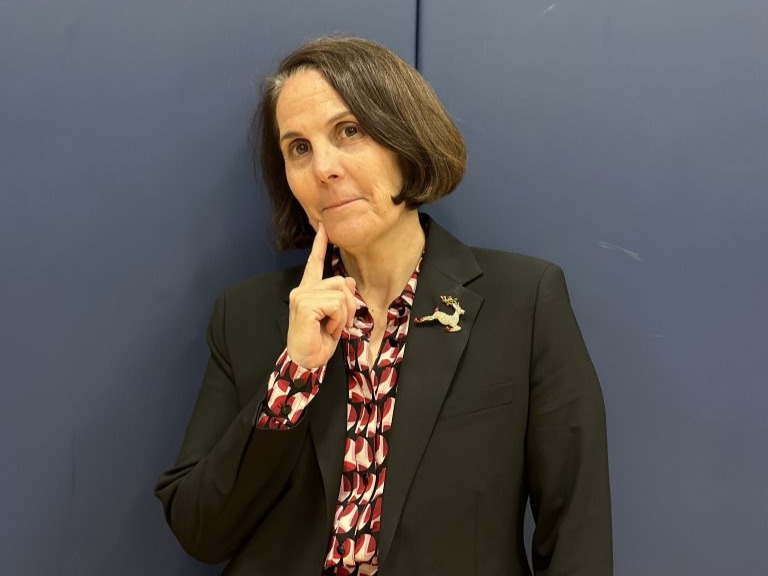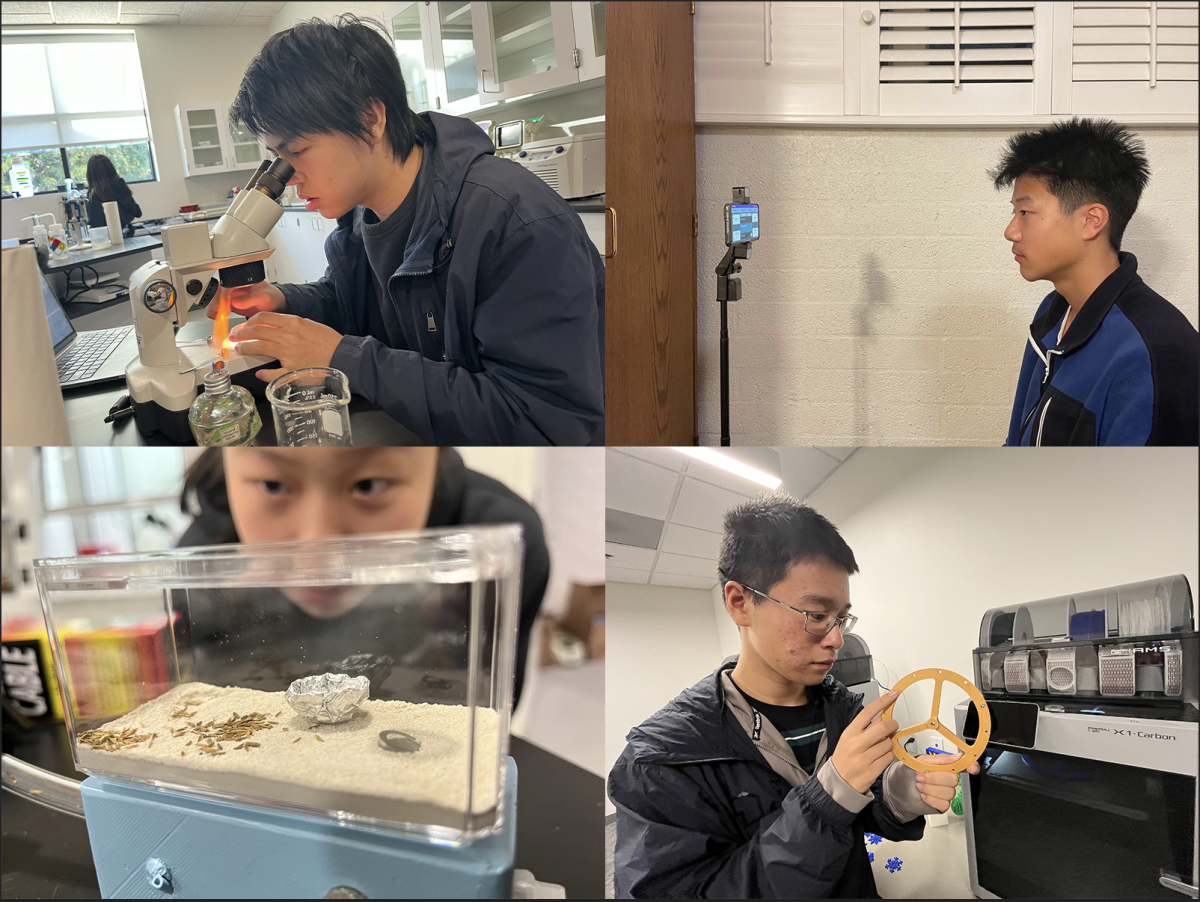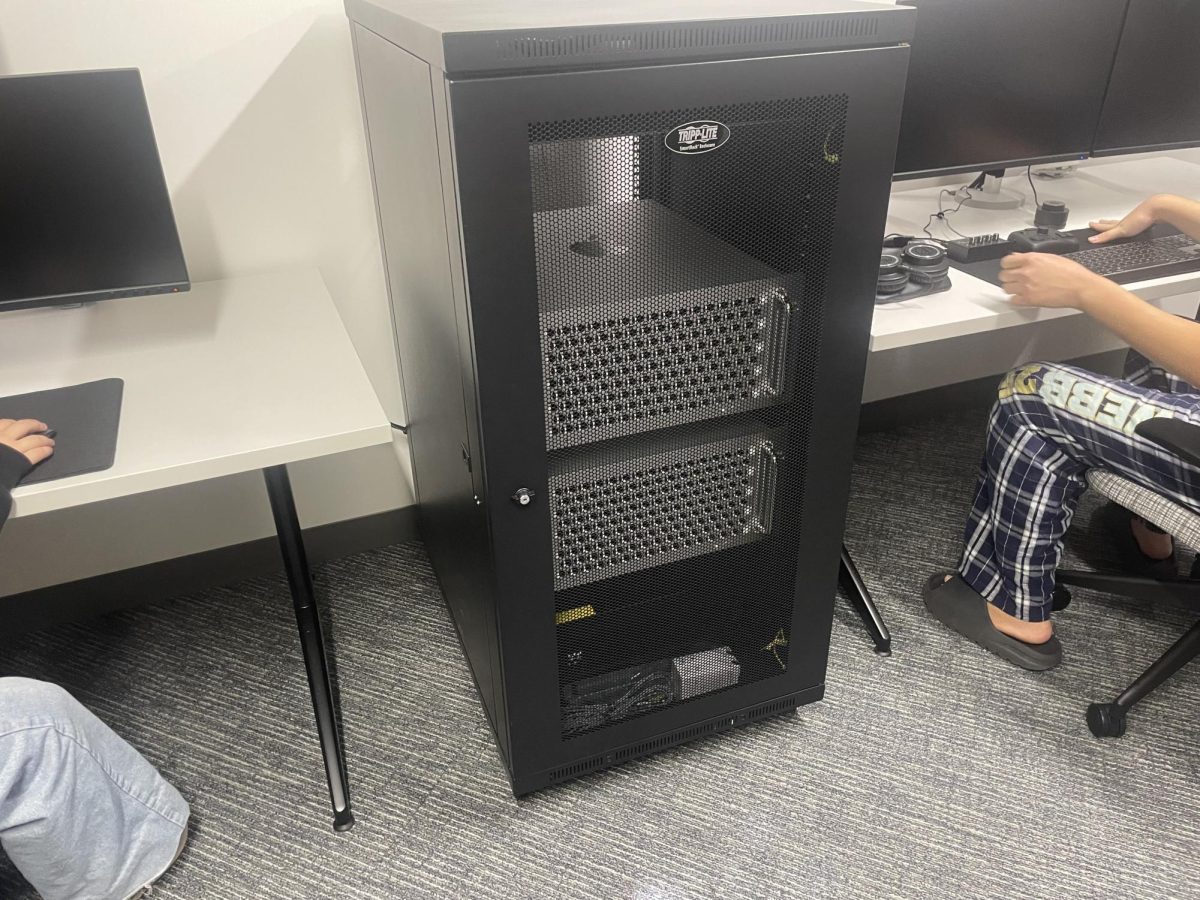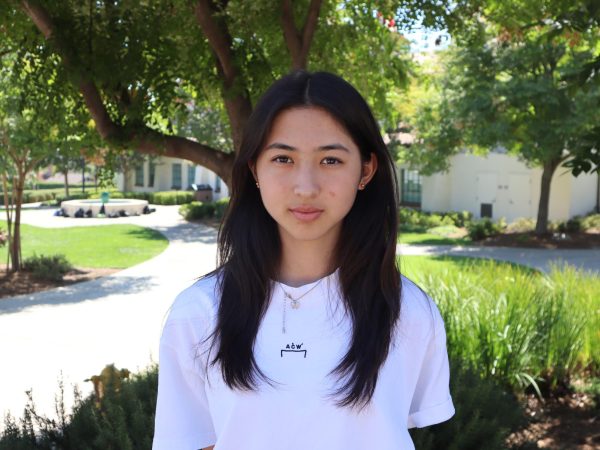AI is all around us. Maybe you use it in late night chats with Chat GPT or perhaps even aiding in meal planning decisions with Webb GPT.
In a world shaped by artificial intelligence, Dr. Theresa Smith, Head of School, navigates the integration of technology into education while maintaining the core values of critical thinking, creativity, and community.
During Dr. Smith’s sabbatical leave in the fall semester of 2022, she visited many educational institutions in the country, such as Tufts University, Massachusetts Institute of Technology, and Case Western Reserve University. She explored how innovation centers are transforming education, which has informed her approach to preparing students at Webb for a rapidly evolving future.
“One recuring theme I found throughout my exploration was innovation,” Dr. Smith said.
A pivotal moment in her journey came in February 2022, when she attended a presentation given by a scientist, Lonnie Johnson. The presentation talked about the role AI plays in our society. This presentation changed her viewpoint on the world of AI. She was perplexed on how capable AI software was becoming. Dr. Smith found herself delving into this idea and craving to learn more about AI’s function and power in society.
As AI continues to advance, its role in education is expanding. A study from Harvard University found that over half (51%) of young people aged 14 to 22 have used generative AI, primarily for brainstorming and creative projects.
“I think there’s a lot of concern that reliance on those tools will make people less creative, but I don’t think that’s the case… AI tools can spur humans to be more creative,” Dr. Smith said.
At Webb, Dr. Smith envisions leveraging AI as a tool in order to enhance creativity, support learning, and prepare students for the complexities of the future. She emphasized the need for schools to rethink their educational frameworks, particularly in light of AI’s capabilities.
For example, AI tools like Grammarly are reshaping how students learn to write, prompting educators to reflect on which foundational skills remain vital and how they can adapt teaching methods to preserve creativity and critical thinking.
While some worry about the potential for AI to diminish human creativity, Dr. Smith believes that technology has always been a part of artistic and academic evolution.
“I don’t think those tools take the place of human creativity. I think they can make people more creative… Artists have often engaged with and considered new technologies as ways of creating art,” Dr. Smith said.
Dr. Smith highlighted the importance of emphasizing the human aspects of learning.
“At Webb, we’ve done a great job of fostering human connection and collaboration. These skills are going to be incredibly important in an AI-driven world,” Dr. Smith said.
Dr. Smith’s vision for The Webb Schools involves striking a balance between tradition and innovation. She believes in preserving values such as building community through shared experiences, while ensuring that the school’s programs remain relevant to the future.
“There are things we’ve been doing here for 100 years that are always important, like coming together as a community in a chapel and hearing each other’s stories,” Dr. Smith said., “But we also want to make sure our education is relevant for the future, and that means we have to continue to innovate.”
This approach is evident in Webb’s commitment to integrating new technologies into its core programs rather than confining and limiting innovation. For example, the recently introduced Charles Huang Innovation Wing in the library encourages student exploration and creativity by providing students with a space where they can foster new ideas and work to bring those ideas to life.
AI usage in education prompts ethical considerations. Dr. Smith believes that transparency is key to navigating the distinction between a student’s personal creativity and the creativity facilitated by AI tools.
“If I’m in an art class and just type in three words to generate an image, that’s probably not a very thoughtful process, but if I’m using AI as a tool to explore and enhance my creative process, that’s very different,” Dr. Smith said.
Dr. Smith recognizes that the capabilities provided by AI can be a double-edged sword; yet, she is optimistic about the potential of AI to enhance human creativity like past technological advancements have achieved.
“It’s about the process, not just the end product,” Dr. Smith said. She stresses the importance of maintaining a focus on the learning process of a challenge rather than the result.
By integrating AI responsibly, more schools will be able to provide their students with advanced tools that enable deeper learning and exploration.
“One of the exciting pieces of AI is that it gives students tools at an earlier age that allow them to do things way beyond what high school students could have done when I was in high school,” Dr. Smith said.
As Dr. Smith continues to shape the future of The Webb Schools, her focus remains on ensuring that the school’s educational program stays relevant and impactful. She envisions a future where Webb is a leader in incorporating AI into education, leveraging its unique position in the broader innovation hub of California.
“We’re not afraid to innovate,” Dr. Smith said. “And because we’re in California, we have access to incredible institutions and companies that are at the forefront of AI development.”
By embracing the opportunities, the resources, and the challenges of AI, Dr. Smith and The Webb Schools are preparing students not just for the future, but for shaping the future.





![All members of the Webb Robotics Winter season teams taking a group photo. Of note is Team 359, pictured in the middle row. “It was super exciting to get the win and have the chance to go to regionals [robotics competition]” Max Lan (‘25) said. From left to right: Max Lan (‘25), Jerry Hu (‘26), David Lui (‘25), Jake Hui (’25), Boyang Li (‘25), bottom Jonathan Li (’25), Tyler Liu (‘25)](https://webbcanyonchronicle.com/wp-content/uploads/2025/03/Screenshot-2025-03-10-at-2.41.38 PM.png)









